-

-

-

-

-

-

-
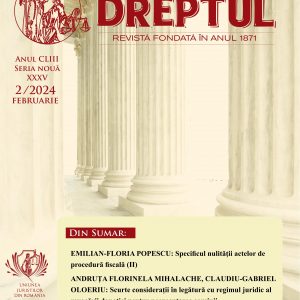
-

-
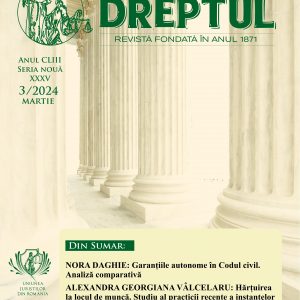
-

-

-

-

-

-
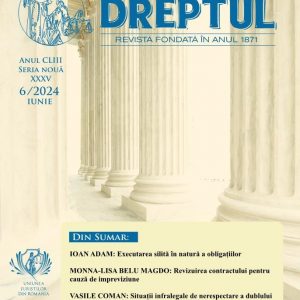
-

-

-

-

-
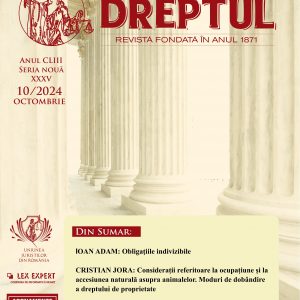
-

-

-

-

-
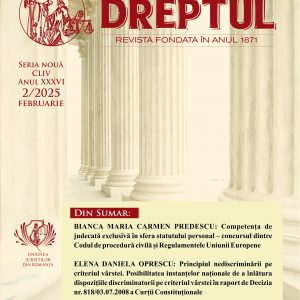
-
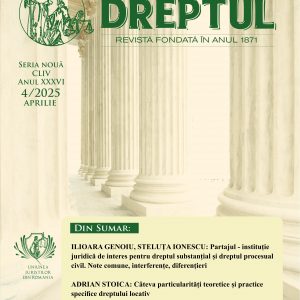
-
 Commercial competition is „a social patrimonial or non-patrimonial relationship, arising between natural or legal persons engaged in economic activities, based on the property right, equal opportunity for competitors, the freedom of action for enterprises, the freedom of choice for consumers and the obligation of the participants in these relationships to enable the exercise of the mentioned rights, in order to ensure a degree of rivalry between competitors which would bring benefits to the consumers, in terms of price, quality of the marketed goods and services”. Competition can be manifested in various forms, namely: perfect competition, also called pure; real perfect competition; imperfect competition; monopolistic competition. From a different perspective, namely that of the respect for fair customs and of the general principle of good faith, the law distinguishes between fair competition and unfair competition. Fair competition is „the situation of rivalry on the market, in which each enterprise tries to simultaneously obtain sales, profit and/or market share, offering the best practical combination of prices, quality and related services, by respecting the fair customs and the general principle of good faith” [Article 11 a) of the Law No 11/1991 on combating unfair competition]. „Unfair competition is... the commercial practices of the enterprises that contravene to the fair customs and to the general principle of good faith and which cause or may cause damages to any market participants” [Article 2 (1) of the Law No 11/1991]. Price is an essential indicator of the social reality and also a market instrument. In the doctrine the market price is defined as „a quantity of money that the buyer is willing to offer and can offer to the producer in return for the good he can offer”. It may have anti-competitive nature when it is derisory or contrary to fair customs.
Commercial competition is „a social patrimonial or non-patrimonial relationship, arising between natural or legal persons engaged in economic activities, based on the property right, equal opportunity for competitors, the freedom of action for enterprises, the freedom of choice for consumers and the obligation of the participants in these relationships to enable the exercise of the mentioned rights, in order to ensure a degree of rivalry between competitors which would bring benefits to the consumers, in terms of price, quality of the marketed goods and services”. Competition can be manifested in various forms, namely: perfect competition, also called pure; real perfect competition; imperfect competition; monopolistic competition. From a different perspective, namely that of the respect for fair customs and of the general principle of good faith, the law distinguishes between fair competition and unfair competition. Fair competition is „the situation of rivalry on the market, in which each enterprise tries to simultaneously obtain sales, profit and/or market share, offering the best practical combination of prices, quality and related services, by respecting the fair customs and the general principle of good faith” [Article 11 a) of the Law No 11/1991 on combating unfair competition]. „Unfair competition is... the commercial practices of the enterprises that contravene to the fair customs and to the general principle of good faith and which cause or may cause damages to any market participants” [Article 2 (1) of the Law No 11/1991]. Price is an essential indicator of the social reality and also a market instrument. In the doctrine the market price is defined as „a quantity of money that the buyer is willing to offer and can offer to the producer in return for the good he can offer”. It may have anti-competitive nature when it is derisory or contrary to fair customs. -
 This study aims at advancing solutions in view of correctly construing and interpreting certain provisions regulated under Law No 303/2004 on the status of judges and public prosecutors, in view of determining whether ex-judges and public prosecutors are entitled to benefit from the recalculation of their service pensions as a result of reaping the length of service obtained from practicing as lawyers, after retirement.
This study aims at advancing solutions in view of correctly construing and interpreting certain provisions regulated under Law No 303/2004 on the status of judges and public prosecutors, in view of determining whether ex-judges and public prosecutors are entitled to benefit from the recalculation of their service pensions as a result of reaping the length of service obtained from practicing as lawyers, after retirement. -
 The Decision of the Constitutional Court of Romania No 405/2016, referring to the plea of unconstitutionality of the provisions of Article 246 of the Criminal Code of 1969, of Article 297 (1) of the Criminal Code and of Article 132 of the Law No 78/2000 on preventing, discovering and sanctioning of corruption acts (hereinafter referred to as „Decision No 405”)1, is not a mere interpretative decision2 whereby, following the admission of a plea of unconstitutionality, it is established that a text of law is constitutional only provided that a certain wording has a certain meaning3. The recitals of the Decision No 405, to which there have been added, shortly after, those included in the Decision No 392/2017, referring to the plea of unconstitutionality of the provisions of Article 248 of the Criminal Code of 1969, of Article 297 (1) of the Criminal Code and of Article 132 of the Law No 78/2000 on preventing, discovering and sanctioning of corruption acts4 (hereinafter referred to as „Decision No 392”), have emphasized the fact that the current rules of incrimination of the deeds of abuse of office, once clarified the meaning of the phrase „defectively fulfils”, still establish a criminal liability that rather acts with priority, and not according to ultima ratio principle, and the constitutive elements of the offence do not meet the standards of drafting of such legal norms identified in the case law of the European Court of Human Rights (hereinafter referred to as „ECHR”), the United Nations Convention against Corruption5, as well as in various reports and positions assumed by the European Union bodies on this subject. For the assumption that these observations of the Constitutional Court would determine the legislator to reflect on the necessity to reconfigure the legal provisions in question, the Court has indicated certain points of reference that should be considered in order to ensure a regulation compatible with the international and European standards mentioned.
The Decision of the Constitutional Court of Romania No 405/2016, referring to the plea of unconstitutionality of the provisions of Article 246 of the Criminal Code of 1969, of Article 297 (1) of the Criminal Code and of Article 132 of the Law No 78/2000 on preventing, discovering and sanctioning of corruption acts (hereinafter referred to as „Decision No 405”)1, is not a mere interpretative decision2 whereby, following the admission of a plea of unconstitutionality, it is established that a text of law is constitutional only provided that a certain wording has a certain meaning3. The recitals of the Decision No 405, to which there have been added, shortly after, those included in the Decision No 392/2017, referring to the plea of unconstitutionality of the provisions of Article 248 of the Criminal Code of 1969, of Article 297 (1) of the Criminal Code and of Article 132 of the Law No 78/2000 on preventing, discovering and sanctioning of corruption acts4 (hereinafter referred to as „Decision No 392”), have emphasized the fact that the current rules of incrimination of the deeds of abuse of office, once clarified the meaning of the phrase „defectively fulfils”, still establish a criminal liability that rather acts with priority, and not according to ultima ratio principle, and the constitutive elements of the offence do not meet the standards of drafting of such legal norms identified in the case law of the European Court of Human Rights (hereinafter referred to as „ECHR”), the United Nations Convention against Corruption5, as well as in various reports and positions assumed by the European Union bodies on this subject. For the assumption that these observations of the Constitutional Court would determine the legislator to reflect on the necessity to reconfigure the legal provisions in question, the Court has indicated certain points of reference that should be considered in order to ensure a regulation compatible with the international and European standards mentioned. -
 This study starts from a case settled in the preliminary chamber by a court that has proceeded to the exclusion from the probative material of some illegally obtained evidence, but also of those derived therefrom. In the analyzed situation in the context of the preliminary chamber it was found that there had been a confusion which led to obtaining data on a person’s financial transactions in an unlawful manner, namely by an ordinance that had not been validated by a judge of rights and freedoms, as the provisions of Article 138 (9) of the Criminal Procedure Code would have required.
This study starts from a case settled in the preliminary chamber by a court that has proceeded to the exclusion from the probative material of some illegally obtained evidence, but also of those derived therefrom. In the analyzed situation in the context of the preliminary chamber it was found that there had been a confusion which led to obtaining data on a person’s financial transactions in an unlawful manner, namely by an ordinance that had not been validated by a judge of rights and freedoms, as the provisions of Article 138 (9) of the Criminal Procedure Code would have required. -
 The postponing of the application of punishment is an institution recently introduced in the Criminal Code, creating problems of interpretation both in the doctrine and in the judicial practice, especially on two levels: the terminology used and the systematization of the substantive and procedural provisions in the legislation. These issues affect the institutions of the revocation and annulment of postponing the application of punishment.
The postponing of the application of punishment is an institution recently introduced in the Criminal Code, creating problems of interpretation both in the doctrine and in the judicial practice, especially on two levels: the terminology used and the systematization of the substantive and procedural provisions in the legislation. These issues affect the institutions of the revocation and annulment of postponing the application of punishment. -
 This paper starts from the finding that there is currently no clear criterion for distinguishing between the offences against bodily integrity or health and attempted murder and, as a result, the practice in this matter is contradictory. As a solution, it proposes to adopt the criterion of causal aptitude of the action, while emphasizing, at the same time, that the adoption of this criterion requires that the psychological theory of guilt be abandoned.
This paper starts from the finding that there is currently no clear criterion for distinguishing between the offences against bodily integrity or health and attempted murder and, as a result, the practice in this matter is contradictory. As a solution, it proposes to adopt the criterion of causal aptitude of the action, while emphasizing, at the same time, that the adoption of this criterion requires that the psychological theory of guilt be abandoned. -
 What we intended on this occasion is to discuss the rules that are used to determine in the concrete situations, related to the case, the legal inheritors of de cuius and the meanings of these rules. The topic seems interesting to us, because on the way in which it is dealt with, on the answers given to some questions, which are raised or can be raised in this regard, depend the adequate theoretical perspective and the rigor of determining of the inheritors in a given case, not only of the lawful ones, but also of the testamentary successors, each category of heirs being able, either alone or with the other, to access the inheritance.
What we intended on this occasion is to discuss the rules that are used to determine in the concrete situations, related to the case, the legal inheritors of de cuius and the meanings of these rules. The topic seems interesting to us, because on the way in which it is dealt with, on the answers given to some questions, which are raised or can be raised in this regard, depend the adequate theoretical perspective and the rigor of determining of the inheritors in a given case, not only of the lawful ones, but also of the testamentary successors, each category of heirs being able, either alone or with the other, to access the inheritance. -
 The attenuating circumstance of the challenge is provided by the Criminal Code in force in Article 75 (1) a). By the challenging act of illegitimate nature it is affected the physical integrity or dignity of the person, so that, although punished by the criminal law, the offender’s deed is merely a reaction, a disproportionate response to an illegitimate action or inaction. The challenge can only be retained if the conditions relating to the offence committed under the auspices of a powerful disorder or emotion, respectively the conditions relating to the challenging act are cumulatively met. Without claiming to exhaust the subject, the paper aims to emphasize also some controversies regarding: the proportionality and the time interval between the challenging act and the offence; the distinction between the challenge and some justificative causes or causes of non-imputability; the possibility of retaining the challenge concurrently with the premeditation.
The attenuating circumstance of the challenge is provided by the Criminal Code in force in Article 75 (1) a). By the challenging act of illegitimate nature it is affected the physical integrity or dignity of the person, so that, although punished by the criminal law, the offender’s deed is merely a reaction, a disproportionate response to an illegitimate action or inaction. The challenge can only be retained if the conditions relating to the offence committed under the auspices of a powerful disorder or emotion, respectively the conditions relating to the challenging act are cumulatively met. Without claiming to exhaust the subject, the paper aims to emphasize also some controversies regarding: the proportionality and the time interval between the challenging act and the offence; the distinction between the challenge and some justificative causes or causes of non-imputability; the possibility of retaining the challenge concurrently with the premeditation. -
 This study discusses a novel issue in the field of theory and case law of the criminal law. It deals with the necessity to apply the complementary punishment of prohibiting the exercise of the right to pursue the activity of babysitter in the case of the persons who, acting in this capacity, have committed the offence of theft of goods located in the building in which they had access. The author claims that such necessity exists because, in this way, those persons will no longer be able to commit offences acting in the capacity they had throughout the incidence thereof.
This study discusses a novel issue in the field of theory and case law of the criminal law. It deals with the necessity to apply the complementary punishment of prohibiting the exercise of the right to pursue the activity of babysitter in the case of the persons who, acting in this capacity, have committed the offence of theft of goods located in the building in which they had access. The author claims that such necessity exists because, in this way, those persons will no longer be able to commit offences acting in the capacity they had throughout the incidence thereof. -
 Acțiunea tatălui de a-l extrage pe fiul său minor dintr-un mediu impropriu dezvoltării armonioase fizice și psihice de la domiciliul stabilit provizoriu de instanța de judecată la mamă nu constituie infracțiunea de lipsire de libertate în mod ilegal, prevăzută de art. 205 alin. (1), (2) și (3) lit. b) C.pen., și nici infracțiunea de nerespectare a măsurilor privind încredințarea minorului, prevăzută de art. 379 C.pen. (cu notă aprobativă).
Acțiunea tatălui de a-l extrage pe fiul său minor dintr-un mediu impropriu dezvoltării armonioase fizice și psihice de la domiciliul stabilit provizoriu de instanța de judecată la mamă nu constituie infracțiunea de lipsire de libertate în mod ilegal, prevăzută de art. 205 alin. (1), (2) și (3) lit. b) C.pen., și nici infracțiunea de nerespectare a măsurilor privind încredințarea minorului, prevăzută de art. 379 C.pen. (cu notă aprobativă).
